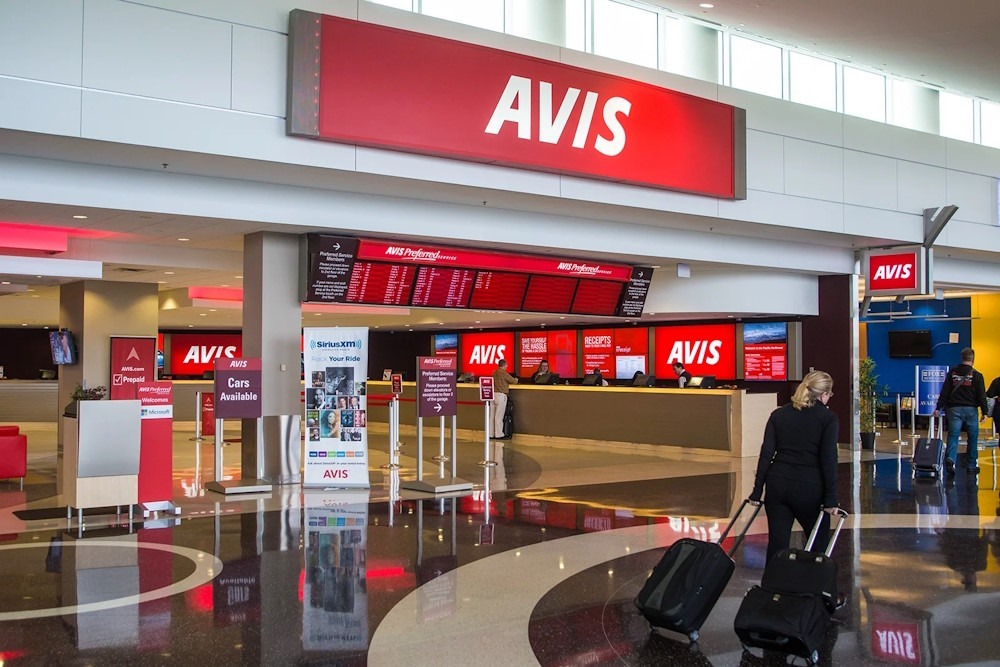A Hedge Fund Made a Killing on Avis Stock. Now the Trade Is Backfiring

Shares of Avis Budget Group have crashed in recent weeks, saddling the hedge-fund management firm that owns almost half the company with a paper loss exceeding $1 billion.
The firm is SRS Investment Management, and its founder, Karthik Sarma, has tied his fate to the rental-car company. While most hedge-fund managers diversify their holdings to reduce risk, he had concentrated about one-quarter of the $11 billion his firm manages in Avis stock before the selloff, according to a Wall Street Journal analysis of regulatory filings.
Avis has been one of SRS’s biggest—and most successful—investments since at least 2011, but the trade didn’t take off until 2021. Car prices and travel boomed after the pandemic, generating billions of dollars in paper profit for the hedge fund. Now car prices are falling and so is the value of Avis’s fleet, tanking its stock.
SRS’s flagship fund has lost 8% this year, according to a person familiar with the matter. The underperformance has contrasted with the wider stock rally and a 7.3% gain for 2024 on the S&P 500. The SRS fund has generally been a solid performer, returning 25% in 2023 and an average of 12.9% since 2007, the person familiar with the matter said.
Sarma rides his performance swings calmly, cultivating the loyalty of a cadre of core analysts who have been at the firm since it launched in 2006, a former employee said. He avoids the limelight and lives a relatively modest lifestyle, typically eating home-cooked vegan lunches at the office, he said.
SRS is a holdover from the days when small teams at hedge funds managed large pots of money and placed “high-conviction” trades using deep research. That model has given way to a boom in multimanager hedge funds that employ dozens of separate investment pods with different trading strategies.
In the second half of last year, SRS started selling large amounts of Avis shares but still owned about $3 billion worth at the end of December. The stock price declined 39% this month after the company reported a 53% drop in earnings for the fourth quarter of 2023 and increased vehicle write-downs.
“Vehicle depreciations are going to be about $25 per month more than [analysts] expected,” said John Healy, a stock analyst at Northcoast Research. “When you have 700,000 cars in your fleet, that adds up to a couple hundred million dollars a year.”
At the heart of the reversal in SRS’s fortunes: Used car prices are dropping, in part because higher interest rates have made monthly auto-loan payments too expensive for some consumers. That means Avis gets lower prices for cars it retires from its fleets. Higher rates also increase the interest expenses it pays on cars it keeps.
Travel in the U.S. also continues to grow and the selloff in Avis shares makes them an attractive buy, said Stephanie Moore, an equity analyst at Jefferies.
Even with the recent downturn, SRS appears to have profited significantly on Avis shares, most of which it bought when they traded in the teens and twenties, according to data from S&P Global Market Intelligence. The stock traded at $107 on Friday.
Sarma launched SRS in 2006 after working at Tiger Global Management, a once-highflying hedge fund that mixed venture-capital investing with public stocks. SRS employs a narrower strategy, typically owning fewer than 20 stocks at a time, according to filings with the Securities and Exchange Commission. The firm’s total portfolio is closer to 50 companies after accounting for derivatives and bets that stocks will fall, the person familiar with the matter said.
SRS had a total of about $5 billion in shares of Avis, Netflix and Snap at the end of December, according to data from S&P. That accounts for about 45% of the $11 billion in assets under management the firm reported to the SEC in February.
Sarma has used activism to raise returns. He pushed onto Avis’s board of directors after a proxy campaign in 2018 and urged management to boost share prices by changing operations and financial strategy. Sarma made one of his analysts, Brian Choi, Avis’s chief financial officer and, in mid-2021, the company launched an aggressive stock buyback, retiring 20% of its shares.
A few months later, Avis reported unexpectedly high profit as post-quarantine travel surged, driving a boom in rentals and lifting share prices. Meme-stock traders amplified the rally, urging one another to buy and punish short sellers that wagered Avis stock would fall.
With fewer shares outstanding because of the buybacks, this “short squeeze” caused the stock to double in a single day. SRS made about $3 billion in paper gains in 2021. The trade put Sarma on the map, outstripping performance by many hedge-fund titans that year.
The following year, earnings before interest, taxes, depreciation and amortization, or Ebitda, hit a record $4.1 billion at Avis as business travel picked up. The company raced to buy more cars even as prices rose because of inflation, shortages and a shift by automakers toward higher-end cars.
The purchases backfired when interest rates jumped and car prices fell. Late last year Avis started cutting its losses, reducing its fleet by 50,000 cars in a few months.
Car prices will continue to weaken because of high interest rates, hitting Avis’s profit, said David Meneret, a hedge-fund manager at Mill Hill Capital. His fund is betting on that outcome, but not in the stock market. Instead, Mill Hill has been buying credit-default swaps, derivatives that rise in value when investors expect Avis’s financial risk to rise.
“I’m not short the stock, because I believe there could be a short squeeze based on more large buybacks,” Meneret said.



